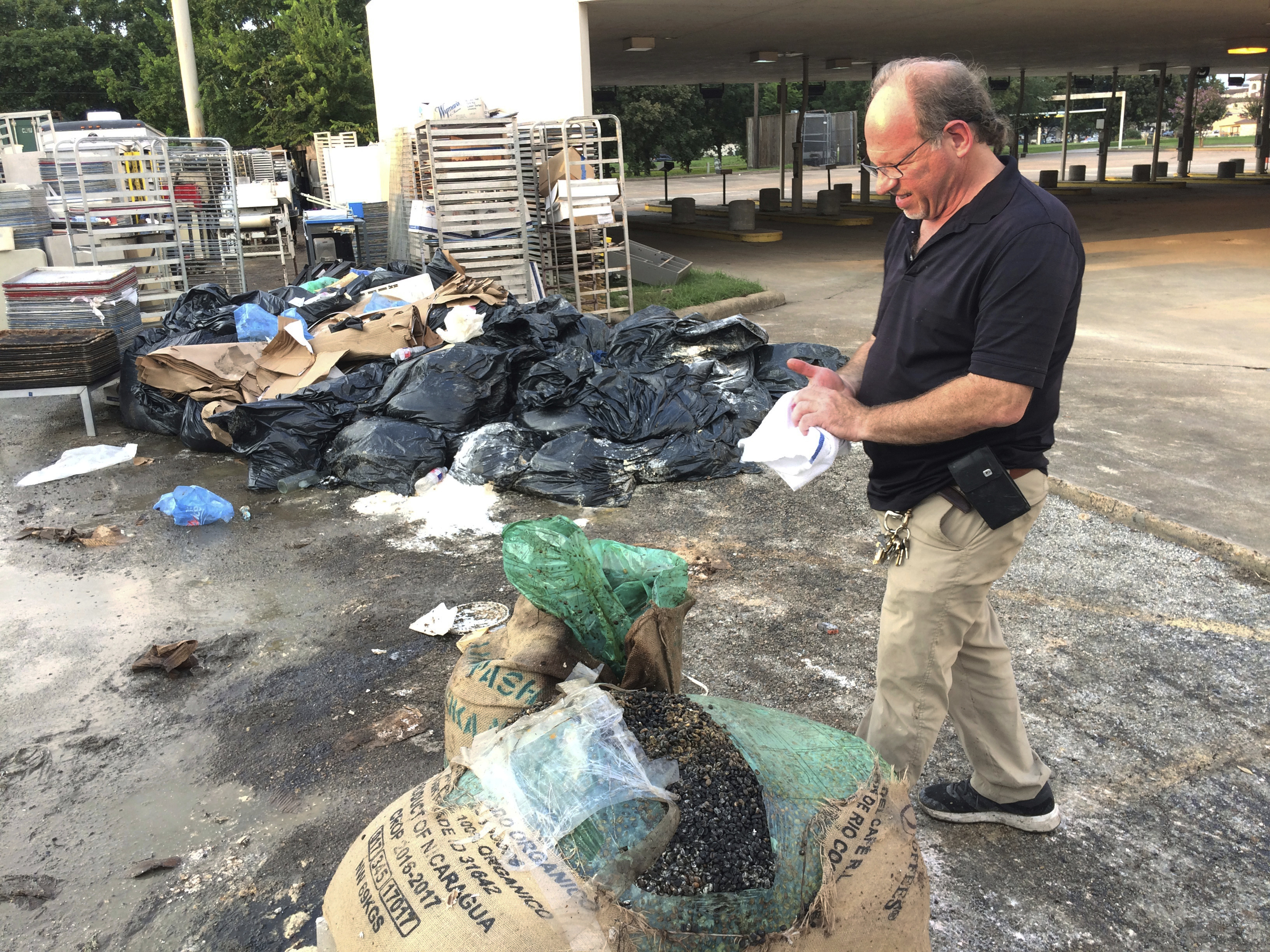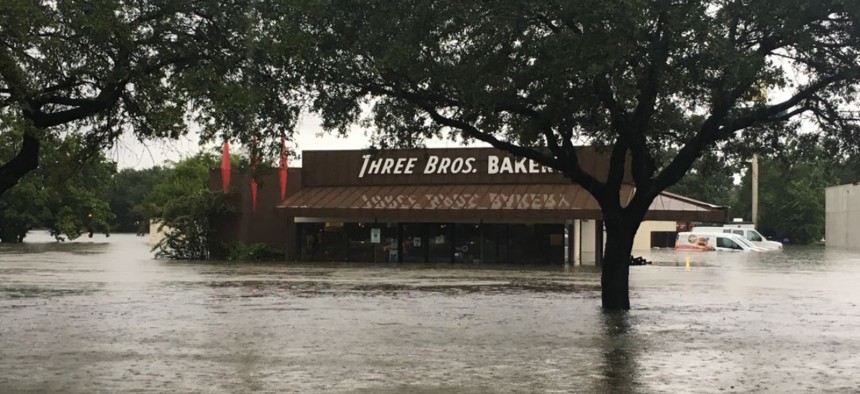Connecting state and local government leaders
After a flood, 40% to 60% of small businesses close down. Lawmakers say improving infrastructure before disasters strike could help prevent that from happening.
Flooding is the most common natural disaster in America, accounting for 73% of major disaster declarations over the past ten years. In addition, flooding is also the most costly disaster and many many communities don’t fully recover even after the water recedes.
Some of the greatest costs of flooding fall on businesses, especially small companies that struggle to reopen and find customers when much of their communities has left or is also dealing with losses.
At a Tuesday event hosted by The Pew Charitable Trusts and the U.S. Chamber of Commerce, local officials and business representatives assembled to discuss what actions can be taken to support businesses after floods.
Janice and Robert Jucker came from Houston, Texas to talk about the devastating impact of natural disasters on their business, Three Brothers Bakery, which has been hit by four floods, a fire, and a hurricane in recent years. “The first thing we think about after a flood is how to pay our people, and there are no emergency bridge loans to pay employees,” Janice said. “It takes more than three months to get a Small Business Association disaster loan submitted, and even then, you can’t use that for payroll.”

In the meantime, the couple charged the costs of reopening after Hurricane Harvey to their credit cards, leading to two massive bills within 30 days, one for $100,000 and one for $141,000.
“We’d be out of business without SBA disaster loans,” Janice added. “But only about 30% of businesses that apply get approved. What about the other 70%?”
The outlook isn’t good. After a flood, 40% to 60% of small businesses close down, and 90% fail within a year of the disaster, unless they are able to reopen their doors within five days, according to Pew research.
Many small businesses struggle not only with the after effects of flooding on their property, but also with destroyed roads that prevent customers from coming back. That is why investing in infrastructure is critical to small business resilience, said Ed Mortimer, the vice president of transportation and infrastructure at the U.S. Chamber of Commerce.
“We’re at a critical moment, since a lot of the infrastructure we have was built 60 to 100 years ago,” Mortimer told the audience. “Now is the time to modernize, and we’re dealing with different climate issues, so we have to build things to last. The longer we wait, the more it will cost the taxpayers.”
In a recent survey, 77% of Americans indicated that they support construction requirements for federally funded infrastructure projects that would better prepare them to withstand extreme weather in flood-prone areas. The same poll indicated that 49% of people support increased federal spending to accomplish infrastructure retrofitting and improvements for flooding.
Businesses are also willing to pay, according to Mortimer, because they believe they will see a return on investment. In the latest action by the business community in this arena, 500 small business leaders in all 50 states signed on to a letter released today calling on Congress to invest in flood ready infrastructure.
The letter adds to the mounting bipartisan pressure on Congress to fund flood projects, which has already resulted in action.
In March of this year, U.S. Reps. Charlie Crist, a Democrat from Florida, and Roger Williams, a Texas Republican, introduced the State Flood Mitigation Revolving Fund Act of 2019. The program would create a partnership between the federal and state governments to provide low-interest loans for infrastructure projects that reduce flood risks, including stormwater management improvements and flood proofing system enhancements in public buildings, businesses, and homes.
In the absence of any definitive federal plans, however, some localities are taking charge. The District of Columbia this week announced their own resiliency plan, which includes several initiatives to retrofit buildings for flood safety, ensure that new buildings are “climate shock” ready, and make flood insurance more affordable.
Mortimer stressed that it will be critical for federal, state, and local governments to work together with the business community to find solutions. “The federal government should play a leadership role, but we have the chance to do something really big now, like when Eisenhower developed the interstate highway system, and that will take collaboration with local leaders,” Mortimer said.
U.S. Rep. David Rouzer, a Republican from North Carolina, is one of those local leaders, who said that eight out of the nine counties in his district were underwater when Hurricane Florence dumped 36 inches of rain in 2018. He noted that the population growth in North Carolina, which has brought new construction and more pavement, coupled with the rising water levels of his district’s rivers and creeks, will make it harder to recover from future floods. “We are rapidly approaching the day where a six inch rain in Raleigh will do the same thing to the area as Hurricane Florence did,” he said. “This should be a front and center issue for every coastal member.”
Rouzer is now working together with Wilmington, North Carolina mayor Bill Saffo to lead resiliency initiatives at the local level, and they are focused on involving the business community at every step. “It’s the perfect opportunity for public-private partnerships,” Saffo noted.
Robert Jucker said he would like to see governments get more engaged with the private sector on the issue. “Small business is the engine of America,” he said. “And the government has to recognize that.”
Emma Coleman is the assistant editor at Route Fifty.

NEXT STORY: MilCloud 2.0 migration is moving forward




